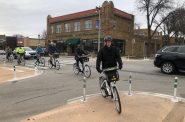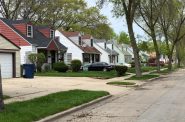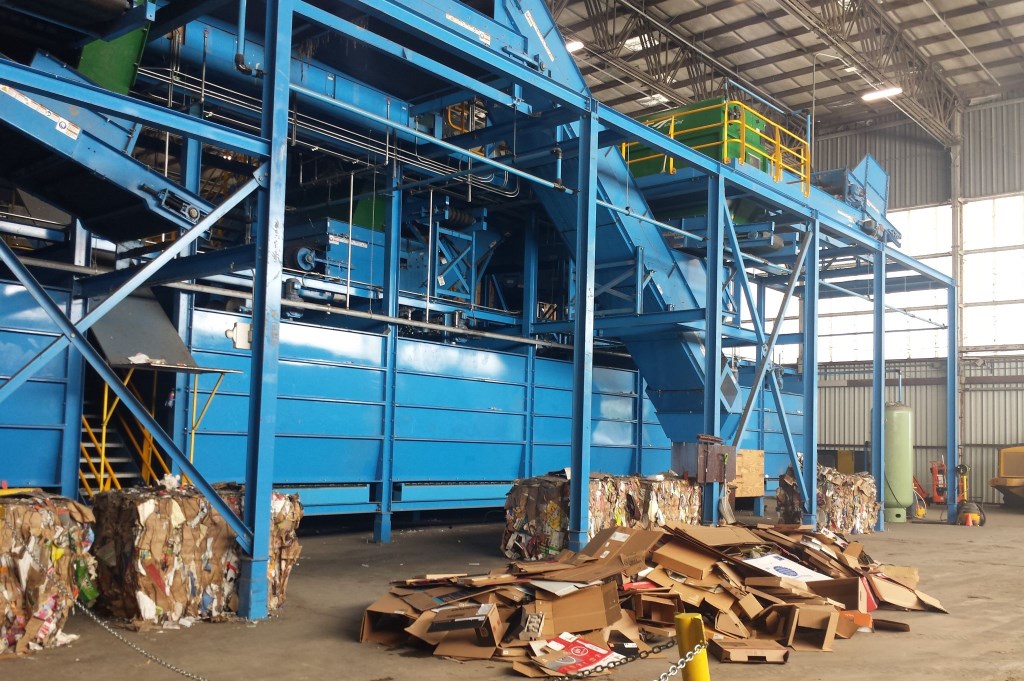More Cities Stop Recycling
All the city news you can use.
Want more links to read? Visit The Overhead Wire and signup. Every day at The Overhead Wire we sort through over 1,500 news items about cities and share the best ones with our email list. At the end of the week, we take some of the most popular stories and share them with Urban Milwaukee readers. They are national (or international) links, sometimes entertaining and sometimes absurd, but hopefully useful.
Google Celebrates Seiichi Miyake: Google’s March 18th Doodle celebrated the Japanese inventor Seiichi Miyake, whose innovation has reshaped cities across the globe. He was the inventor of the tactile square, often known as braille blocks. The bright yellow tiles installed at crosswalks and subway platforms worldwide help the visually impaired navigate dangerous public spaces. Bumped squares inform the user to stop, while tiles with bars indicate directional cues. They were first installed in Okayama, Japan, in 1967 next to a school for the blind. Miyake died in 1982, but his innovation lives on. (Megan Barber | Curbed)
L.A. Wants to Track Scooter Trips: Los Angeles is preparing to launch a one-year program legalizing electric scooters, prompting a debate about data privacy. The program would require trip data from shared scooters and bicycles to be sent to transportation officials. The aim is to help the city determine which companies are operating within regulations. Although the data would be anonymous, opponents claim that location data can be matched to commuters’ unique travel patterns. L.A. wants to use the data to optimize shared vehicle use and ensure equitable access, but skeptics are concerned of encouraging a surveillance state. (Laura Nelson | Los Angeles Times)
More US Cities End Recycling: Until January 2018, China had been a big buyer of recyclable material from the US. However, Chinese officials determined that too much trash was contaminating recycling loads and stopped purchasing the materials. Now, soaring costs of local recycling have led many cities to end their programs. Many cities have increased their landfill output, but cities like Philadelphia have turned to incinerators that convert waste into energy. Considering the rise in recycling fees, the conversation has begun to shift from recycling waste to limiting waste at its source; reducing the use of plastics or packaging is the best way to ease the stress on recycling. (Michael Corkery | New York Times)
Don’t Solve Traffic, Build Great Places: In 1965, the Highway Capacity Manual coined the term Level of Service (LOS), which graded roads on their ability to keep vehicle traffic flowing freely. Ironically, however, LOS has been the greatest obstacles to transportation choice and access. The metric encourages building or widening roads to manage congestion, instead of finding solutions that don’t require single occupancy vehicles. Now, some US cities are turning to other metrics such as “Multi-Modal Level of Service,” which also considers the needs of bicyclists and pedestrians or VMT, which aims to reduce driving associated with new development. (Lara Fishbane, Joseph Kane, Adie Tomer | Brookings)
To Build Future Cities, Stop Driving: The purpose of cities is to bring people together, but in the twentieth century, they were blown apart. Auto-oriented development encouraged unsustainable and inequitable land use patterns that limit the potential of cities. Peter Calthorpe, a Berkeley architect, wants cities to stop sprawling and paving over nature while finding ways to allow nature back into the urban core. Then city dwellers would be able to fight climate change and develop more socioeconomically equitable cities. In this way, dense, mixed-use, accessible cities are the future, so long as we get out of our cars. (Robert Kunzig | National Geographic)
Quote of the Week
Madrid closed its central business district to cars for the first time during the 2018 Christmas period and an analysis informed by Spain’s second largest bank has found that, year-on-year, till transactions were significantly boosted by the measure. The closure also had another benefit: cleaner air.
–Carlton Reid in Forbes discussing the benefits to retail of closing down streets during Christmas.
This week on the podcast Yonah Freemark joins for the annual prediction show!
Want more links to read? Visit The Overhead Wire and signup. (http://dtrnsfr.us/2iA8Yas)
Urban Reads
-
Do E-Bike Speeds Need To Be Regulated?
 Jan 26th, 2025 by Jeff Wood
Jan 26th, 2025 by Jeff Wood
-
Surveillance Technology Is Changing Our Brains
 Jan 20th, 2025 by Jeff Wood
Jan 20th, 2025 by Jeff Wood
-
Is Property Tax Reform Needed?
 Jan 13th, 2025 by Jeff Wood
Jan 13th, 2025 by Jeff Wood






















